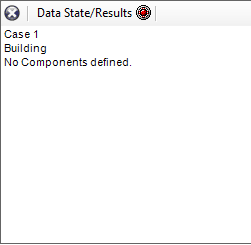Passive:Dynamic Simulation: Unterschied zwischen den Versionen
SebSta (Diskussion | Beiträge) |
SebSta (Diskussion | Beiträge) |
||
| Zeile 1: | Zeile 1: | ||
== Switch to dynamic Mode == | == Switch to dynamic Mode == | ||
The major advantage of WUFI®Passive is the possiblity to compare the results of the static passive house calculation method | The major advantage of WUFI®Passive is the possiblity to compare the results of the static passive house calculation method with the dynamic simulation of WUFI®Plus. | ||
=== Set Boundary Conditions from Passive House === | === Set Boundary Conditions from Passive House === | ||
[[Bild:Passive-resultbox_error.png|left]] | [[Bild:Passive-resultbox_error.png|left]] | ||
Version vom 17. Juli 2013, 14:01 Uhr
Switch to dynamic Mode
The major advantage of WUFI®Passive is the possiblity to compare the results of the static passive house calculation method with the dynamic simulation of WUFI®Plus.
Set Boundary Conditions from Passive House

Certain input parameters can be taken over from WUFI®Passive to WUFI®Plus. To simplify this step new a button "Set Boundary Conditions from Passive House" has been introduced. This option will set reasonable values for the dynamic simulation mode for better comparison of the results.
Setpoints for WUFI®Plus in detail:
Temperature: Design Minimal Temperature = indoor temperature, Design Maximal Temperature = overheating temperature,
Ground temperature: New optional ground climate added with Relative Humidity = 99 constant, Temperature = sin curve with min/max values and phase shift from WUFI®Passive calculation
Internal loads: